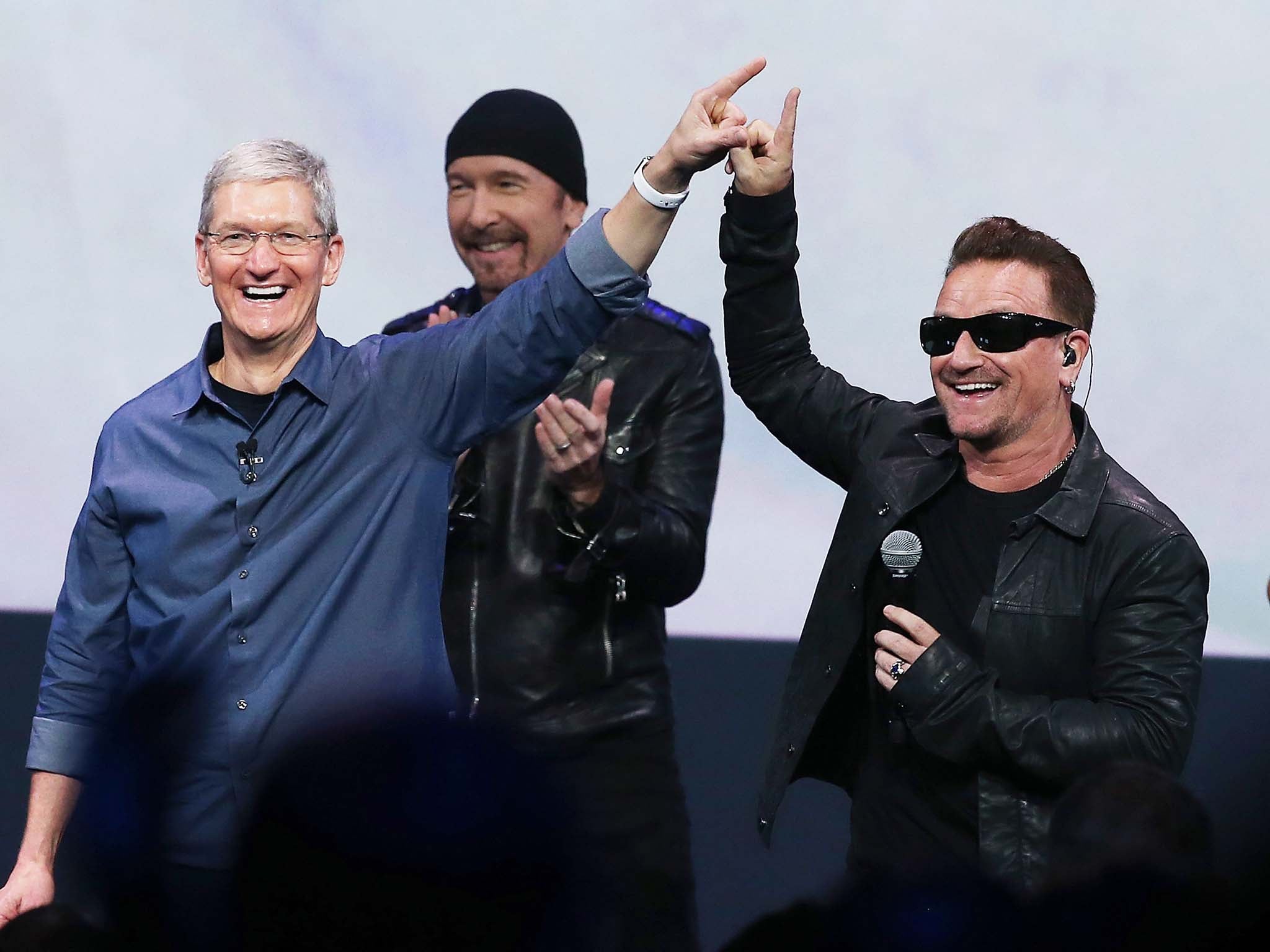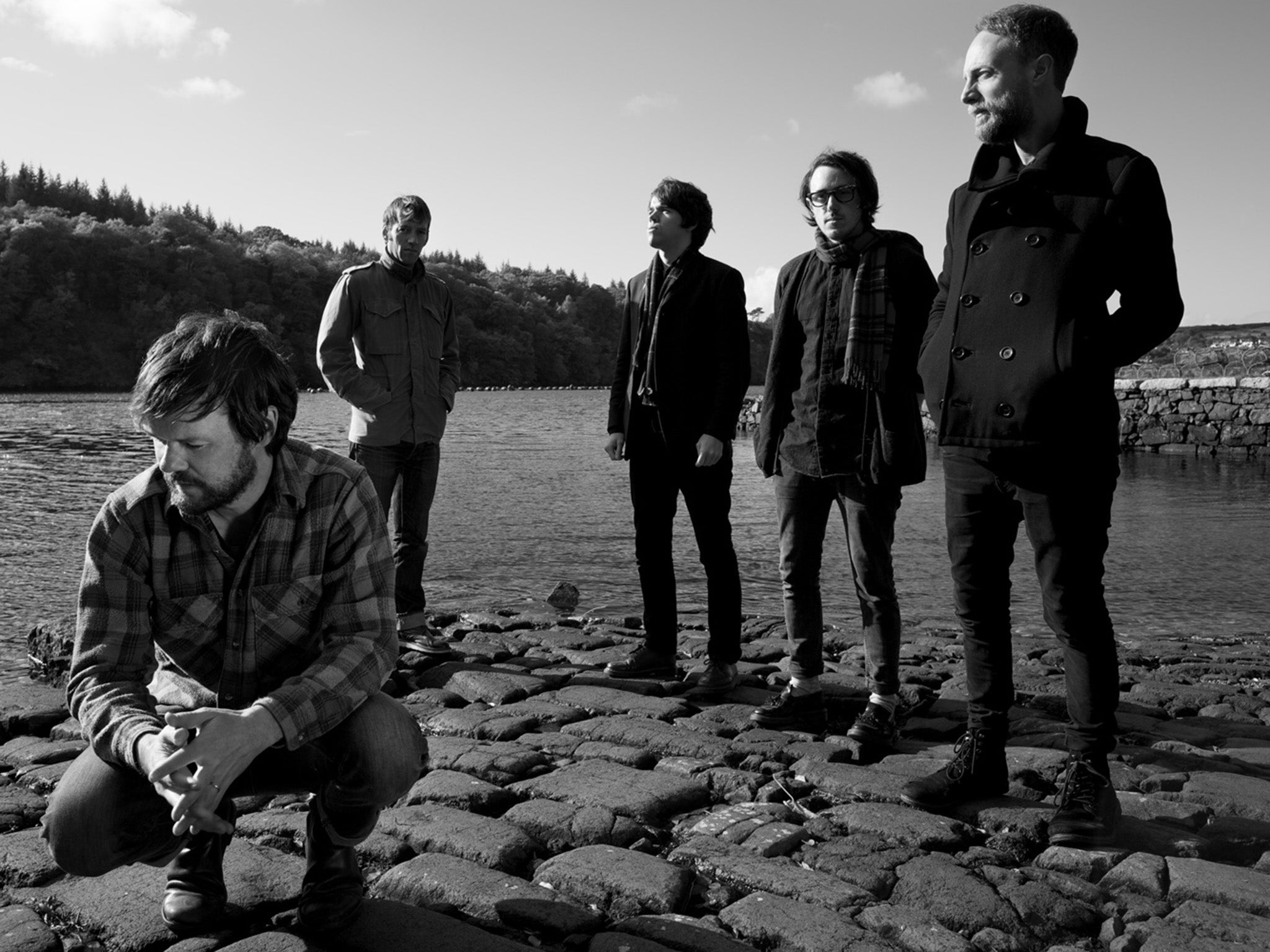Bands and brands: From Tinie Tempah to Idlewild, how some of the world's biggest acts are cashing in
With less and less money in music, artists are increasingly happy to do commercial deals - but they face big dangers

Your support helps us to tell the story
From reproductive rights to climate change to Big Tech, The Independent is on the ground when the story is developing. Whether it's investigating the financials of Elon Musk's pro-Trump PAC or producing our latest documentary, 'The A Word', which shines a light on the American women fighting for reproductive rights, we know how important it is to parse out the facts from the messaging.
At such a critical moment in US history, we need reporters on the ground. Your donation allows us to keep sending journalists to speak to both sides of the story.
The Independent is trusted by Americans across the entire political spectrum. And unlike many other quality news outlets, we choose not to lock Americans out of our reporting and analysis with paywalls. We believe quality journalism should be available to everyone, paid for by those who can afford it.
Your support makes all the difference.Scottish rock outfit Idlewild’s return to the charts after six years away has ensured a bracing start to the year – especially when accompanied by the fruits of the group’s other new venture: an Idlewild-branded ale.
Not only have the Edinburgh five-piece come back with an album (Everything Ever Written) that broke the top 20, they have found an extra promotional outlet in an industry where low sales have forced acts to look at other ways of raising their profile and making creativity pay, by moving into the perilous world of brand endorsement, lending their names and faces to promote third-party products.
Such opportunities can help artists steady their careers through these turbulent times, though they are not without dangers, as endorsing a dodgy product or embarking on a clumsy stunt can backfire and undermine an artist’s credentials. Understandable, then, why a band would go with the safe option of a distinctive ale. Idlewild’s Scottish Fiction IPA has been devised with their home city’s celebrated craft brewer Barney’s and hit the shelves and pumps in the wake of a series of rock-orientated beers, among them a handful of brews from Elbow’s Charge pale ale, Iron Maiden’s Trooper ale and Status Quo’s Piledriver.
Idlewild’s limited-run effort is more minor key than some of these collaborations with established brewers, sold in major supermarkets or national pub chains, yet the principles remain the same. The market crossover between rock fans and real-ale quaffers is perhaps one of the more obvious, with possibilities on both sides. Breweries can reach thirsty new customers while groups have a new means of promoting their music – Idlewild offered free downloads with their beer while Elbow have had album playbacks in pubs.
For Idlewild, working with a craft beer producer they all liked was a fun way to promote their new album, even if they only benefited tangibly in free beer, frontman Roddy Woomble explains.

“It was a cool thing to work on together – we all enjoy Barney’s beer anyway, so it was a nice tie-in and a great way to advertise the album in a different way,” he says. “In many ways Idlewild are the musical equivalent to small-batch craft beer”. As with the thought that went into how their beer would taste, he explains. “I think people realise it is not a case of us trying to take on the beer giants, but more than just a good collector’s item.” The band are also self-releasing the record, which requires more effort on their part, guitarist Rod Jones adds. “With an established fan base, which is something we are extremely grateful for, it is possible with various sites and mechanisms to self-release and have complete control. It does mean a lot more work, though.”
Such initiatives pale into significance beside the mother of music branding – hip-hop producer Dr Dre’s involvement with Beats headphones. He sold the marque to Apple last year, which apparently saw him leap ahead of P Diddy to the summit of hip-hop’s rich list. While we may have to wait a long time to see another musician make as much money from a business deal, Dre has shown the possibilities for a generation of artists keen to monetise their profiles and savvy enough to avoid embarrassing tie-ins. While the sums may be smaller in this country, a considerable amount of cash is sloshing around.
A report published in 2013 from music rights organisation PRS for Music announced the amount spent by brands on music in the UK broke the £100m barrier in the previous year. That figure included anything from festival sponsorship to syncing tunes for adverts, but among the breakdowns was an estimated £4.7 million for artist endorsement, and it is easy to see the sort of artists with a fanbase companies wish to target.
Tinie Tempah has been cleverly parlaying his sharp look into an aspirational brand alongside high-end marques Mercedes-Benz and Veuve Clicquot. Likewise, tattooed rapper Professor Green sounds like a marketing guru when he talks about working with firms on collaborative projects, as when he became “social ambassador” for sportswear brand Puma.
Enjoy unlimited access to 100 million ad-free songs and podcasts with Amazon Music
Sign up now for a 4 month free trial (3 months for non-Prime members)
Enjoy unlimited access to 100 million ad-free songs and podcasts with Amazon Music
Sign up now for a 4 month free trial (3 months for non-Prime members)
Looking at the variety of endorsements on offer, you might think it was impossible for an artist to be tarnished, even by the most cheesy appearance. We may have been baffled to see John Lydon fronting a campaign for Country Life butter, but his tweedy reinvention made more sense when he claimed in 2009 he was using the dosh to reform his revered post-Sex Pistols outfit Public Image Ltd. On a different tack, former pop starlet Sophie Ellis-Bextor has managed to maintain her elegance as the face of paint supplier Dulux’s “colour of the year”. As a young mum, she can even carry off promoting a brand of sugar-free chewing gum. Yet tie-ins do backfire, most spectacularly in the case of U2’s collaboration with Apple that saw their album Songs of Innocence last year appear for free in iTunes accounts across the world.

In a mammoth backlash, the stunt was derided as audio junk-mail, Apple released a tool to enable U2 haters to easily remove the gift and the band’s frontman Bono made a humble apology, which he then retracted. One of the most vocal critics of the move was Iggy Pop, saying: “Part of the process when you buy something from an artist, it’s kind of an anointing. You are giving that person love.”
Iggy Pop, though, has not been immune from criticism for his plugs for Swiftcover car insurance. One advert showing Pop boasting about his insurance was pulled by the Advertising Standards Authority, when it found he was promoting a product which he wouldn’t be permitted to buy, since the insurer excluded people working in the entertainment industry.
Pepsi, meanwhile, has had the occasional torrid time with its celebrity tie-ins. Michael Jackson was rushed to hospital in 1984 after his hair caught fire while filming a commercial for the cola brand, which more recently had to phase out Britney Spears’ multi-million-dollar deal after she was repeatedly papped with a certain competitor’s can in her hand.
Usually, though, pop stars get dropped when they have been accused of more serious offences. Here, the act of brand withdrawal seems to magnify their purported crimes and increase their public ignominy, as was the case with Chris Brown after he was charged with assaulting then-girlfriend Rihanna. Before that his image was so wholesome that in the US he had been the face of a campaign to drink more milk. After the news emerged, the milk campaign was pulled and Wrigleys also lost interest in him endorsing Doublemint gum.
Plenty of stars also fall out with businesses over what they get and the services they provide. Will.i.am was sued by his own clothing brand for dropping out too early, while Katy Perry took haircare firm Jemella Group to court because they had ended a deal ahead of schedule, the company claiming her popularity had dipped too much for her to remain profitable. Then again, falling foul of an endorsement gone wrong might not necessarily harm an artist. Think back to 2011 when Rihanna was chosen as the face of skincare giant Nivea, celebrating its centenary. Somehow unaware of the Bajan R’n’B star’s infamy, the brand quickly dropped her, saying she was “too sexy” to represent its clean values. For once, this may be a situation where Spinal Tap’s Nigel Tufnel would be right to ask, “what’s wrong with being sexy?”
Join our commenting forum
Join thought-provoking conversations, follow other Independent readers and see their replies
Comments